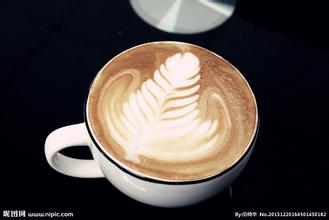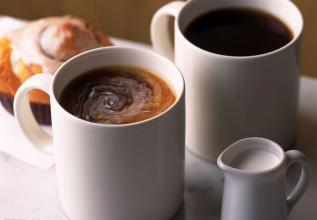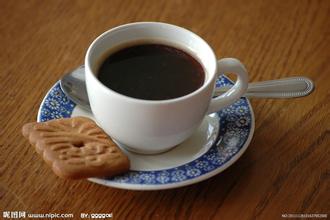Soft, fragrant Rwanda Coffee Flavor Manor Flavor characteristics of Fine Coffee beans
The first problem for Malaba coffee farmers is to set up a cleaning station. The coffee fruit must be transported to the cleaning station to wash the sugar under the skin of the coffee bean within 12 hours after picking, otherwise the flavor of the coffee will be greatly damaged. In July 2001, with funding from UNR, the Ministry of Culture and Industry of Rwanda (Office des Cultures Industrielles du Rwanda,OCIR-Caf é), ACDI/VOCA and ISAR, they set up the first cleaning station near the main road in the Cyarumbo district. However, the cleaning station was not opened until the harvest time, so only 200 kilograms (441 pounds) of the harvest were washed that year. However, the result was surprisingly good. In 2002, the cleaning station was upgraded to supply more coffee processing. ACDI/VOCA is responsible for funding the construction of pipelines to bring in Mount Huye mineral water and help improve the efficiency of cleaning stations. The pipeline was opened in March 2002.
During the 2002 harvest season, Rwanda introduced a new certification system to ensure that coffee beans shipped to cleaning stations are of proper quality. About half of Abauzam Gambi's members are certified, and cooperatives are able to find buyers in professional markets in Europe and North America.
Be recognized by the world
Malaba coffee beans are manually selected and classified according to their quality.
Malaba coffee beans are manually selected and classified according to their quality.
PEARL brought coffee experts to Rwanda to maintain contact with the seller, the Public Coffee Company (Community Coffee) in Louisy, USA, and sent samples to Louisiana. In June 2002, representatives of public coffee visited Malaba. At that time, the current President of Rwanda, Paul Kagame, declared the importance of the plan on behalf of the government. Public Coffee bought 18000 kilograms (40000 pounds) of Malaba beans at $3 per kilogram above the average market price. Coffee beans are shipped to Louisiana, where they are roasted locally and used in the company's delicate coffee. It is also the first direct contract between an American roaster and an African coffee cooperative.
Comic relief, a British charity, has also taken an interest in Malaba. They pledged to use some of the 55 million pounds earned from their 2001 Red nose Day (Red Nose Day) in Britain and Africa to donate to the Genocide Widows Association (Association des Veuves du Genocide,AVEGA), an association set up for the widows of the 1994 Rwanda massacre. The charity found that many Malaba farmers are also members of AVEGA, so they can provide funds and assistance to Malaba farmers through AVEGA. They then contacted the British coffee roasting company (Union Coffee Roasters) and their representatives visited Malaba together with senior officials of the International Fair Trade labelling Organization (FLO) in 2002. After a group of people visited various places, they awarded proof that Malaba coffee had also become a commodity for the first time for Rwandan cooperatives to gain fair trade status. UCR described Malaba Coffee as "flashing citrus flavors with rich, sweet chocolate notes" and bought all the unsold products during the 2002 harvest.
In early 2003, UCR distributed Malaba coffee through the Sainsbury's supermarket in Sainsbury and sold it in its 350 stores until Red nose Day that year. In 2003, Abauzam Gump made a net profit of US $35000. Of this, 70 per cent is allocated to farmers at a price of US $0.75 per kilogram, more than three times the profits earned by other Rwandan coffee growers and enough to cover previously unaffordable health care and education services. The remaining 30% is invested in cooperatives and used to buy calcium carbonate, an agricultural lime that can reduce the increase in acidity of the soil due to the loss of minerals by rainfall.
Coffee and beer
Since 2003, when PEARL thought that the mode of operation was self-sufficient, it gradually reduced the financial support of the Abauzam Gambi cooperative. Cooperatives provide grower loans to help improve their living standards and can invest in livestock, health insurance and education. A cooperative bank opened in the village in March, allowing farmers to maintain and manage their deposits locally without having to trek to the city of Butare.
People revolved around the computers in the new telecom center in late 2004, when the London simultaneous Brewery (Meantime Brewery) began to offer coffee beer made from coffee beans produced by Malaba. The drink is identified as an alcoholic chilled cappuccino or digestif. After tasting coffee from all over the world, the chief brewer decided to add a small amount of vanilla and chocolate to Malaba coffee, which tastes better than nutty coffee and bitter coffee from South America. The original beer had an alcohol content of 4%, the same caffeine content as coffee and was described as "silky and mellow". Coffee and beer are sold in large branches in Sainsbury and in some bars and clubs. The drink is one of the only two Fairtrade-recognised beers in the UK market, and it was not until 2006 that it lost its Fairtrade status by reducing coffee rates and increasing alcohol content (now 6 per cent). Coffee beer is still made from Malaba coffee beans and is the only coffee beer recognized in the British Isles and won the gold medal in the world beer cup coffee flavor beer category in 2006.
In 2006, the Swedish Minister of Development and Cooperation and Deputy Minister of Foreign Affairs, Karin Jemtin (Carin Jamtin), visited Malaba to expand cooperation between Sweden and Rwanda and to promote Malaba coffee to the Swedish professional market. In July 2006, a remote center (telecentre) opened in Malaba under the coordination of PEARL, USAID, NUR and Washington State University (WSU). Among them, the Digital Gap reduction Center (Center to Bridge the Digital Divide,CBDD) provides funds and resources. Three WSU students stayed in Rwanda for six weeks to help set up the centre and train local staff. The center is now run by local staff.

Important Notice :
前街咖啡 FrontStreet Coffee has moved to new addredd:
FrontStreet Coffee Address: 315,Donghua East Road,GuangZhou
Tel:020 38364473
- Prev

The soft taste of Colombian Coffee Manor introduces the characteristics of Colombian boutique coffee.
Colombia, located in the northwest of South America, is a beautiful country with a long history. Indians have lived on this land since ancient times. It was colonized by Spain in 1531 and gained independence in 1819. It was renamed in 1886 to commemorate Columbus, the discoverer of the American continent. In 1808, a priest transferred coffee from the French Antilles to Venezuela.
- Next

Introduction to the varieties of Lindong boutique coffee beans in Sumatra with rich and solid taste
Manning coffee is produced in Sumatra, Indonesia, Asia, also known as Sumatran coffee. Her flavor is very rich, sweet, pure bitter, mellow, with a little sweet and slightly sour, with a long aftertaste and aftertaste. Most coffee lovers drink on their own, but it is also an indispensable variety for blending coffee. Taste Manning Coffee: rich and solid taste
Related
- Detailed explanation of Jadeite planting Land in Panamanian Jadeite Manor introduction to the grading system of Jadeite competitive bidding, Red bid, Green bid and Rose Summer
- Story of Coffee planting in Brenka region of Costa Rica Stonehenge Manor anaerobic heavy honey treatment of flavor mouth
- What's on the barrel of Blue Mountain Coffee beans?
- Can American coffee also pull flowers? How to use hot American style to pull out a good-looking pattern?
- Can you make a cold extract with coffee beans? What is the right proportion for cold-extracted coffee formula?
- Indonesian PWN Gold Mandrine Coffee Origin Features Flavor How to Chong? Mandolin coffee is American.
- A brief introduction to the flavor characteristics of Brazilian yellow bourbon coffee beans
- What is the effect of different water quality on the flavor of cold-extracted coffee? What kind of water is best for brewing coffee?
- Why do you think of Rose Summer whenever you mention Panamanian coffee?
- Introduction to the characteristics of authentic blue mountain coffee bean producing areas? What is the CIB Coffee Authority in Jamaica?

